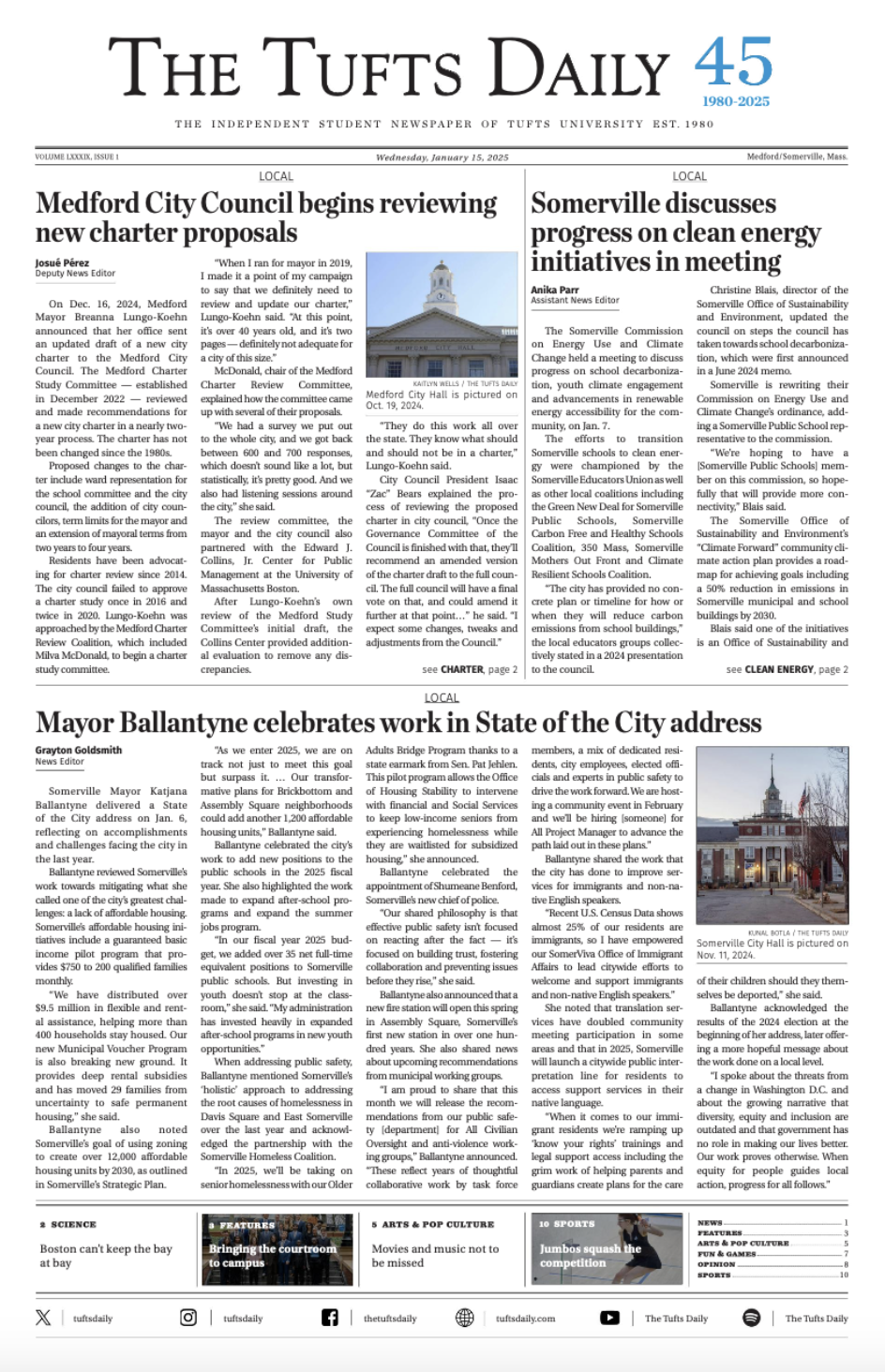Amotz Asa-El, an award-winning Israeli journalist, best-selling author and former executive editor at The Jerusalem Post, spoke to students at the Sophia Gordon Multipurpose Room in an event hosted by Tufts Friends of Israel.
According to Tufts Friends of Israel Political Director Max Price, who introduced him, Asa-El currently is a senior commentator at the Jerusalem Post, as well as a commentator for American publications such as The Wall Street Journal and Market Watch on issues regarding Israeli and Jewish affairs.
“He writes a column called Middle Israel, which is an attempt to provide the down the line center perspective on issues from foreign policy to domestic policy,” Price, a sophomore, said. “[He discusses] political events that are occurring [in Israel], business, religion — all these issues that have defined Israeli politics for a long time.”
Asa-El spent much of his time discussing both recent and historical political and economic events that elevated Israel’s economy among the world’s strongest.
Asa-El began his discussion by talking about some of the difficulties that put Israel as a country at an economic disadvantage at the time of its founding.
“Israel was completely shorn of natural resources other than some potash from which you make fertilizer that comes out of the Dead Sea, and some anecdotal quantities of copper north of Eilat," Asa-El said. "There was nothing. No oil, no gas, no precious metals, no industrial metals, no water, no timber, nothing.”
While lacking natural resources, according to Asa-El, Israel also lacked trading partners immediately near its borders. Furthermore, companies wouldn't enter Israel due to the Arab League's boycott of Israel, which, according to Asa-El, would threaten and blackmail firms around the world so they wouldn’t do business with or in Israel.
“Nestle, McDonald's, Shell,” Asa-El said. “All these firms that you're familiar with as Americans, they unabashedly surrender to that Arab Boycott, which meant that running the Israeli economy became now even more challenging because not only did it lack natural resources, not only could it not trade with its immediate neighbors, [but] even more distant trade partners were now being driven away from Israel.”
According to Asa-El, this economic environment led to serious hyperinflation, a widespread increase in the price of Israeli goods and services, especially in the 1980s. Asa-El said that as the value of the shekel decreased due to this inflation, the Israeli government subsidized the purchasing of specific goods instead of taking steps to strengthen the currency. This led to inflation occurring at an even faster rate than before. By 1985, inflation had reached nearly 450%.
According to Asa-El, if the price of a good or service was too high for general consumers to purchase, the Israeli government would pay the difference between what the price actually was and what the consumer could afford. In doing this, the government intervened and artificially lowered the prices of goods and services nationwide.
“Economically speaking, subsidizing the product's price corrupts the pricing mechanism for those of you who study economics, because there is a reason something costs whatever it costs," Asa-El said.
According to Asa-El, in response to these crises the Israeli government made a series of adjustments in 1985 to adjust the growing economic issues. These included removing these price subsidies, slowly lowering taxes and adjusting the way the Bank of Israel printed money to keep the economy stable. The government abruptly and heavily adjusted the value of the shekel.
Israel completed its transition from socialism to capitalism more recently with current Prime Minister Benjamin Netanyahu as Finance Minister. According to Asa-El, Netanyahu closed every state-owned corporation that he could and severely decreased government spending on social programs.
“There were big protests and [Netanyahu’s actions were] extremely controversial,” Asa-El said. “But strictly economically and financially speaking, it worked. Israel's budget deficit plummeted to zero because it stopped spending all these expenditures.”
The former president of Tufts Friends of Israel who coordinated the event with Asa-El, Ben Shapiro, took away a great deal from the discussion with Asa-El.
“As someone who doesn’t have a background in economics or regularly rarely interface with these topics, I thought it was a fascinating case study to look at with a country that is not often discussed on campus through this economic lens,” Shapiro, a senior, said. “Oftentimes when we talk about Israel we’re not looking at it from an economic perspective, so it’s interesting to connect many of the social or political aspects to this new economic context.”
More from The Tufts Daily





